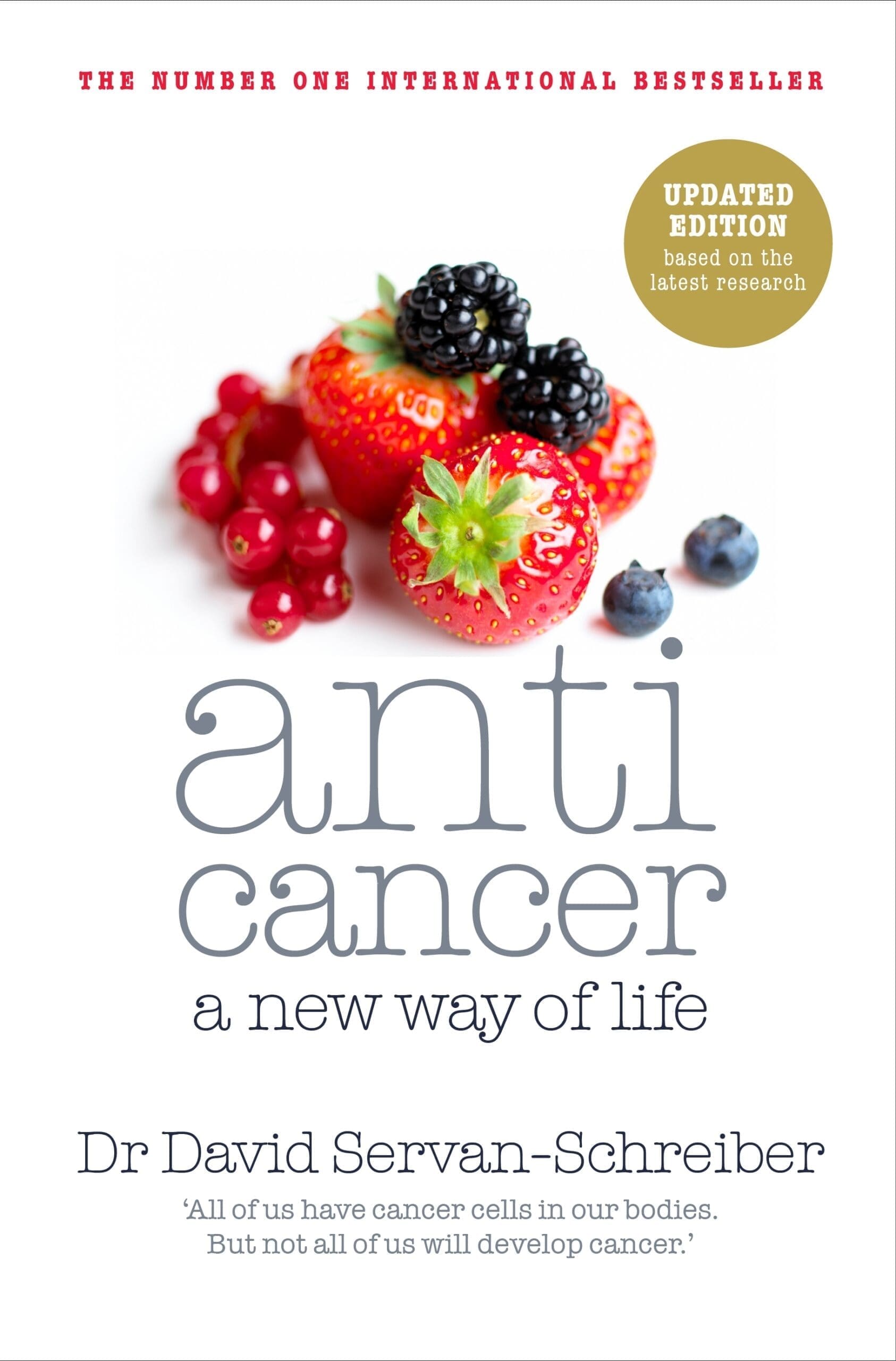
Anticancer
David Servan-Schreiber is a French Doctor Neuropsychiatric and Researcher. “Having been treated twice for a malignant Brain Tumor, David, became a leading figure in his engagement for integrative medicine approaches to the prevention and treatment of Cancer. He popularized his knowledge through teaching seminars, lectures, books, a Blog and Audiobooks. On July 24, 2011, almost 20 years after diagnosis, he died of his Cancer.” (Source from Wikipedia)
All of David Servan-Schreiber’s books aim to help reduce the risk of cancer; And not only that, they also offer guidance for preventing other chronic illnesses such as diabetes, degenerative diseases like Parkinson’s and Alzheimer’s, and many more.
It is valuable to explore David Servan-Schreiber’s work as a guide to maintaining a healthy lifestyle. However, it is essential to remember that his advice should never replace the personalised guidance of your doctor or healthcare provider.
The key guidelines summarised below are drawn from his book “The Body Loves the Truth“ (French: “Notre corps aime la vérité”). This content is also available in the original French on the Psychologies website (Link), and in English translation via Healing Journeys (Link).
Quote from David Servan-Schreiber
“I’m often asked whether it’s possible to summarise healthy habits into a few simple, easy-to-remember rules. I’ve tried to bring together everything I’ve learned in this field over the past twenty years of practising integrative medicine. The result is twenty pieces of advice. I know they work for me, and I hope they bring you happiness too!”
Food Guidelines
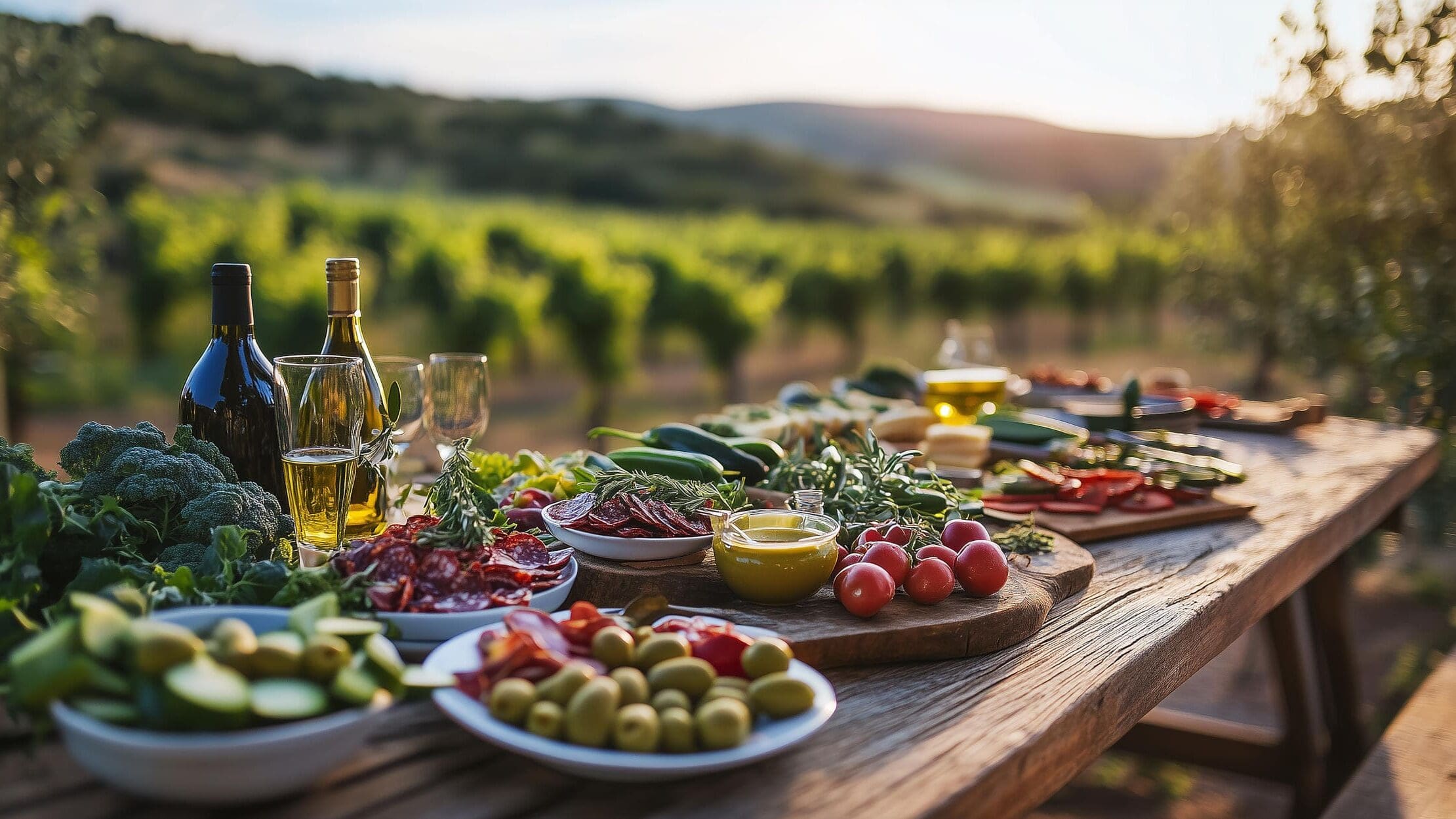
Go retro:
Your main course should be 80 percent vegetables, 20 percent animal protein, like it was in the old days. Opt for the opposite of the quarter-pounder topped with a token leaf of iceberg lettuce and an anaemic tomato slice. Meat should be used sparingly for taste, as when it used to be scarce, and should not be the focus of the meal.
Mix and match your vegetables:
Vary the vegetables you eat from one meal to the next, or mix them together – broccoli is an effective anticancer food, and is even more effective when combined with tomato sauce, onions or garlic. Get in the habit of adding onions, garlic or leeks to all your dishes as you cook.
Go organic:
Choose organic foods whenever possible, but remember it’s always better to eat broccoli that’s been exposed to pesticide than to not eat broccoli at all (The same applies to any other anticancer vegetable).
Spice it up:
Add turmeric (With black pepper) when cooking (Delicious in salad dressings!). This yellow spice is the most powerful natural anti-inflammatory agent.
Skip the potato:
Potatoes raise blood sugar, which can feed inflammation and cancer growth. They also contain high levels of pesticide residue (to the point that most potato farmers I know don’t eat their own grown potatoes).
Go fish:
Eat fish two or three times a week – sardines, mackerel, and anchovies have less mercury and PCBs than bigger fish like tuna. Avoid swordfish and shark, which the FDA says pregnant women should not eat because they contain a high concentration of contaminants.
Remember not all eggs are created equal:
Choose only omega-3 eggs, or don’t eat the yolks. Hens are now fed on mostly corn and soybeans, and their eggs contain 20 times more pro-inflammatory omega-6 fatty acids than cell-growth regulating omega-3s.
Change your oil:
Use only olive and Canola-oil1 in cooking and salad dressings. Go through your kitchen cabinets and throw out your soy-bean, corn and sunflower oils. (And no, you can’t give them to your neighbours or your relatives… They’re much too rich in omega-6 fatty acids!)
Remember to add Mediterranean herbs to your food:
Thyme, oregano, basil, rosemary, marjoram, mint, etc. They don’t just add flavor, they can also help reduce the growth of cancer cells.
Say “Brown is beautiful”:
Eat your grains whole and mixed (wheat with oats, barley, spelt, flax, etc.) and favor organic whole grains when possible since pesticides tend to accumulate on whole grains. Avoid refined, white flour (used in bagels, muffins, sandwich bread, buns, etc.) whenever possible, and eat white pasta only al dente.
Keep sweets down to fruits:
Cut down on sugar by avoiding sweetened sodas and fruit juices, and skipping dessert or replacing it with fruit (especially stone fruits and berries) after most meals. Read the labels carefully, and steer clear of products that list any type of sugar (including brown sugar, corn syrup, etc.) in the first three ingredients. If you have an incorrigible sweet tooth, try a few squares of dark chocolate containing more than 70% cocoa.
Go green:
Instead of coffee or black tea, drink three cups of green tea per day. Use decaffeinated green tea if it gets you too wired. Regular consumption of green tea has been linked to a significant reduction in the risk for developing cancer.
Make room for exceptions:
What matters is what you do on a daily basis, not the occasional treat.
Guidelines (No Food Related)

Get physical activity:
Make time to exercise, be it walking, dancing or running. Aim for 30 minutes of physical activity at least 5 days a week. This can be as easy as just walking part of the way to the office, or the grocery store. A dog is often a better walking partner than an exercise buddy. Choose an activity you enjoy; if you’re having fun, you’re more likely to stick with it.
Let the sun shine in:
Try to get at least 20 minutes of daily sun exposure (torso, arms and legs) without sunscreen, preferably at noon in the summer (but take care to avoid sunburns!). This will boost your body’s natural production of Vitamin D. As an alternative: discuss the option of taking a Vitamin D3 supplement with your doctor.
Banish bad chemicals:
Avoid exposure to common household contaminants. You should air our your dry-cleaning for two hours before storing or wearing it; use organic cleaning products (or wear gloves); don’t heat liquids or food in hard plastics; avoid cosmetics with parabens and phthalates; don’t use chemical pesticides in your house or garden; replace your scratched Teflon pans; filter your tap water (or used bottled water) if you live in a contaminated area; don’t keep your cell phone close to you when it is turned on.
Reach out (and touch someone!):
Reach out to at least two friends for support (logistical and emotional) during times of stress, even if it’s through the internet. But if they’re within arms reach, go ahead and hug them, often!
Remember to Breath:
Learn a basic breathing relaxation technique to let out some steam whenever you start to feel stressed.
Cultivate happiness like a garden:
Make sure you do one thing you love for yourself on most days (it doesn’t have to take long!).
Get involved:
Find out how you can best give something back to your local community, then give it.

More Details from My Own Experience
After a few years of applying David Servan-Schreiber’s advice, I’ve noticed an increasing number of books being published on healthy lifestyle topics. This growing trend is sometimes referred to as “Health knowledge vulgarisation”, a term mentioned by Jessie Inchauspé in her book Glucose Revolution.
Below, I’ve included some personal notes and reflections that I’d like to highlight or add alongside David Servan-Schreiber’s work. These are simply humble observations, based on my own reading and experience.
Please remember that I am not a doctor. This information consists of a few additional topics I’ve come across in books and on websites that may also be worth exploring.
(Loïc from www.HealthInYourPlanet.com)
Our potassium level is something we have to monitor; (Especially if we follow David’s guidelines.)
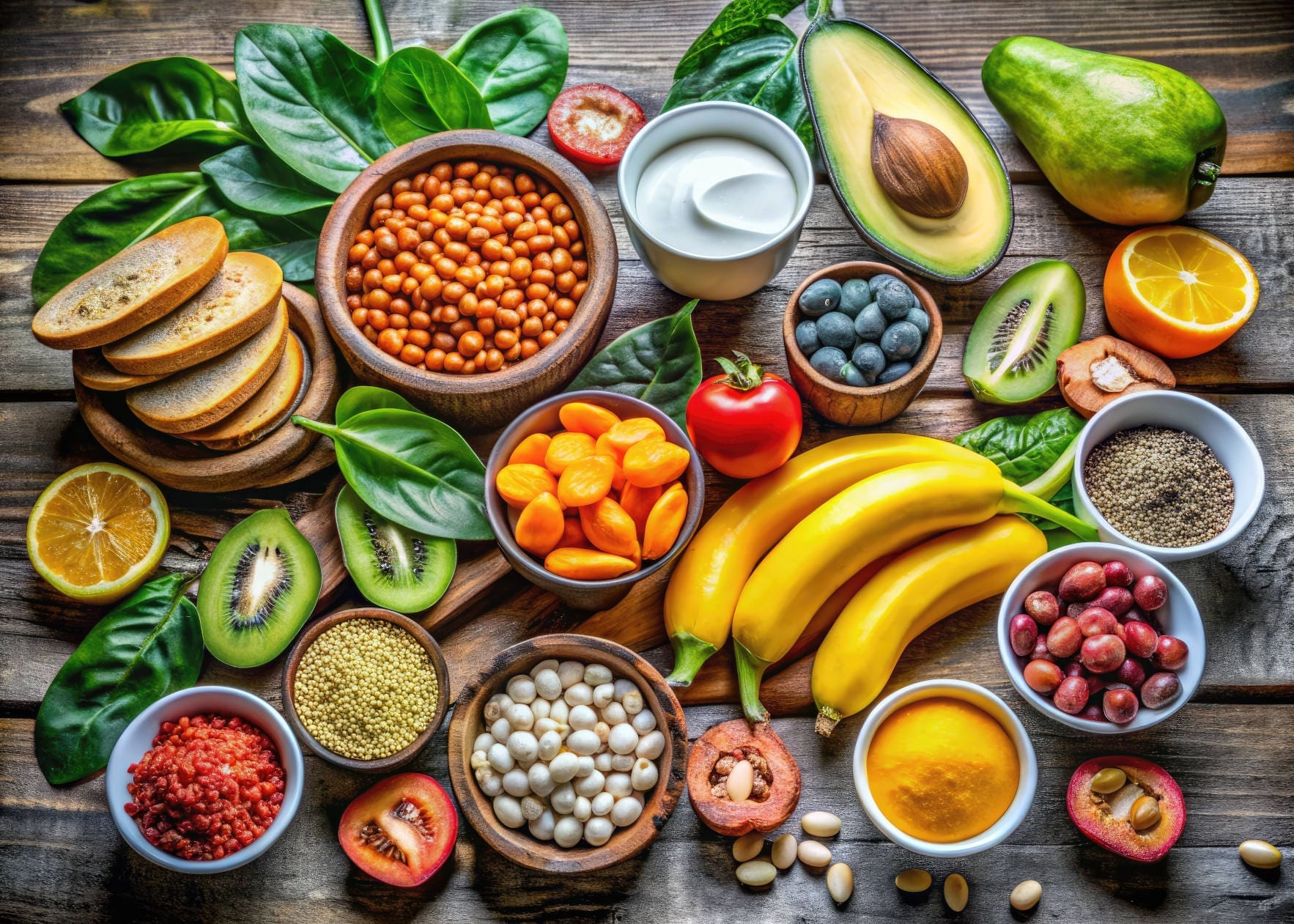
This mean:
By increasing our intake of: “potassium-rich foods” (Such as spinach, beans, avocado, sweet potato, quinoa, chocolate, tomatoes, and bananas) (Lien)
When combined with: “dehydration” (Resulting from excessive sodium intake or increased physical activity)
Can lead to “adverse health effects”.
The combination of high potassium levels and dehydration may disrupt normal blood chemistry, a condition sometimes referred to as “Toxicity”, potentially leading to symptoms such as headaches and, in severe cases, strokes. Dehydration and excessive salt intake are also known to be harmful to the kidneys. (Link)
To avoid this, it is important to understand how to hydrate yourself properly.
The kidneys naturally regulate potassium levels and overall blood chemistry by continuously filtering the blood, a vital process for maintaining the body’s pH balance. The more water we drink, the better our kidneys function, and excess potassium is then naturally excreted through urine.
This is yet another reason why staying well-hydrated is so important.
Drinking fluids regularly helps restore the blood’s pH to a neutral level. This is essential not only for managing potassium but also for maintaining balanced levels of other nutrients, such as salt and sugar.
If you don’t drink tea, it is still important to ensure that you are drinking at least enough water daily.
Doctors generally recommend that the average adult drink 2–3 litres of water per day. Depending on diet and lifestyle, this amount can increase to up to 4 litres, for example, if engaging in regular physical activity.
David Servan-Schreiber emphasised the importance of drinking tea daily, especially green tea, which is known to support liver function and reduce cancer risk due to its natural detoxifying properties.
However, tea can sometimes cause sleep disturbances or anaemia in some individuals. As alternatives, you can opt for decaffeinated tea, herbal infusions (while being cautious with infusions that may cause side effects), or simply water.
Always consult your doctor if you have concerns about anaemia or possible side effects from herbal infusions, as some herbs may cause adverse reactions in high quantities.
Rooibos tea (also known as red tea) is recognised for its detoxifying properties without the caffeine-related side effects. According to some studies, green rooibos, harvested from the same bush, may contain around half the detoxifying compounds found in green tea, making it a gentler alternative, though caution is still advised due to potential anaemia risk.
Hydration needs also depend on your diet, including any food intolerances and your salt intake. Eating healthier foods can improve both sleep and digestion, which in turn supports a healthier lifestyle and enhances your enjoyment of tea.
Light Therapy
David Servan-Schreiber also discussed Light Therapy in his book Healing Without Freud or Prozac, (Link) highlighting its positive impact on mental well-being. He explained the benefits of using a wake-up light (also known as a Clock Light) to help reduce stress. This type of device can help you, as we say sometimes :
“To start the day on the right foot”
Clock Light

A clock light is a type of alarm clock. However, instead of ringing, it gradually increases light intensity in the morning, simulating a sunrise. Because our bodies can sense light even with closed eyes, this gradual exposure helps us wake up more gently and naturally. It can also be surprisingly effective in boosting morning energy levels.
This kind of device may also help reduce stress, and if you try one, you may quickly notice the benefits.
Clock lights might even support natural vitamin D production through early morning light exposure (Link). Another helpful device in this context is the S.A.D. light.
SAD Light (Seasonal, Affect, Mood Disorder)

David Servan-Schreiber emphasised that Light therapy sessions can be a highly effective way to combat depression. This includes treatment for Seasonal Affective Disorder (S.A.D.) (Link), which tends to occur during the winter months when daylight is limited.
Spending 20 minutes each morning doing light therapy can help the body naturally support its Vitamin D production; Even more effectively than using a clock light. This in turn supports the immune system, digestion, mood, and overall energy levels.
- Important note: Light therapy should not replace prescribed vitamin D supplements. While it may contribute to vitamin D levels, it is not a substitute for medical advice. Always consult your doctor.
- Additional note: At HealthInYourPlanet.com, we refer specifically to light therapy and S.A.D. lights, but not to UV light. UV light operates at a different wavelength and intensity and may increase the risk of skin cancer. Please be aware of this important distinction.
Gut Transit
Our Digestive process and gut transit are vital for overall health and can help reduce stress more than we might realise.
As Giulia Enders points out in her book Gut (Link): If you are someone who goes to the toilet once per day, you may avoid many gut-related illnesses, such as colon cancer.
Gut transit and bacterial diversity have a major impact on our mood. The gut is often referred to as our “Second brain” due to its vast number of nerve connections and its strong influence on our well-being. In fact, our mood can be affected for several days based on what we’ve eaten.
Understanding how gut bacteria work can help us make better dietary choices suited to our personal context and family needs.
And yes; Farting is a natural process. There’s nothing wrong with having a little wind from time to time.
Giulia’s book also explains the importance of maintaining healthy gut bacteria. Although the book is somewhat technical, it offers clear insight into the complexity of the gut microbiome and the astonishing number of bacteria involved. It reminds us of a key principle:
“What matters is what you do on a daily basis, Not the occasional treat”
Try to include vegetables in every meal
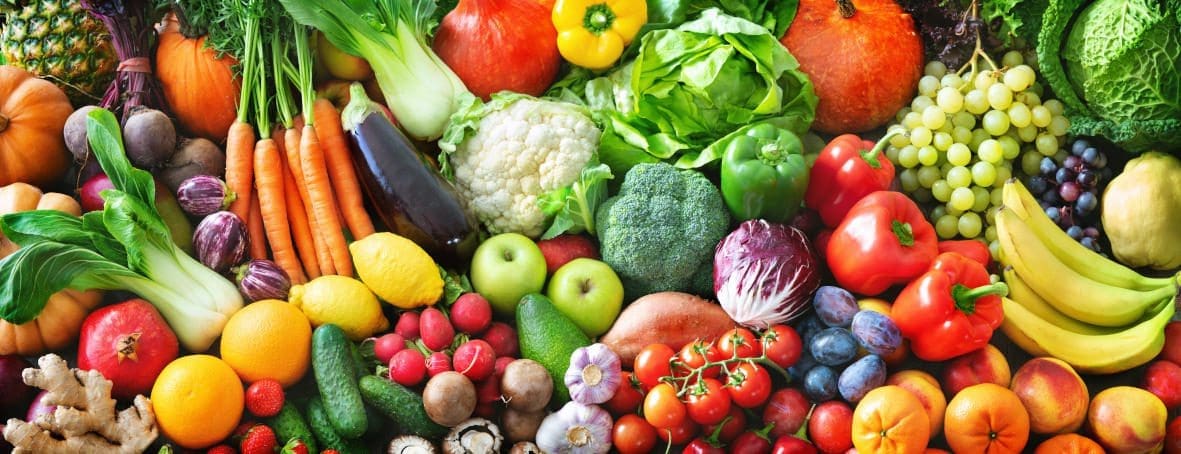
Nutritious advice and meal suggestions can be found at the following (Link). You can also explore menu ideas via another (Link), which offers examples of prepared meals for a typical week while supporting a balanced diet.
Additional useful tips can be found in the book by Jean-Marie Bourre, particularly if your current eating habits include too much repetition. One effective strategy is to plan a two-week rotating menu in advance.
For example, assigning specific meals to specific days; Such as “Saturday lunch: Chicken Basquaise” every two weeks; Can help you better structure your meal planning. This approach allows you to prepare more varied and well-rounded meals, while maintaining a sense of routine. It’s a practical tip for managing your diet more effectively.
Healthy Balanced Meals from Cancer Research UK
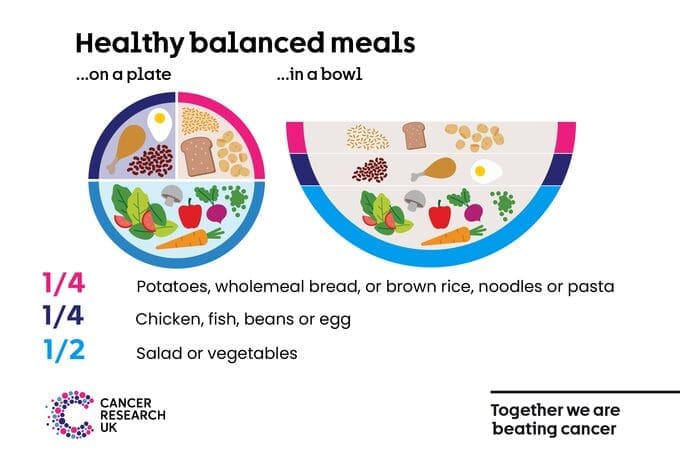
Preparing Three Food Product Categories for Each Meal
- 50% Vegetables Mixing a variety of vegetables is a great idea; Particularly by including a generous portion of green vegetables such as spinach, broccoli, green beans, and others.
- 25% Protein Note: Vegetarian proteins are generally less easily absorbed than animal proteins. Keep this in mind, especially if you are increasing your level of physical activity.
- 25% Grains and Carbohydrates These can be alternated at each meal; For example: wheat, rice, potatoes, pulses, quinoa, buckwheat, and so on. More information is available at this (Link).
Don’t forget to include grains on your plate. While this may seem unusual in some cultures, trying it could significantly improve how you feel overall. Grains offer a wide range of vitamins and are known to support digestion (Gut transit), liver function, nutrient absorption, and healthy weight management.
For example, Pulses are rich in vitamin B. Eating pulses twice a week may quickly lead to noticeable health benefits.
Food Intolerance
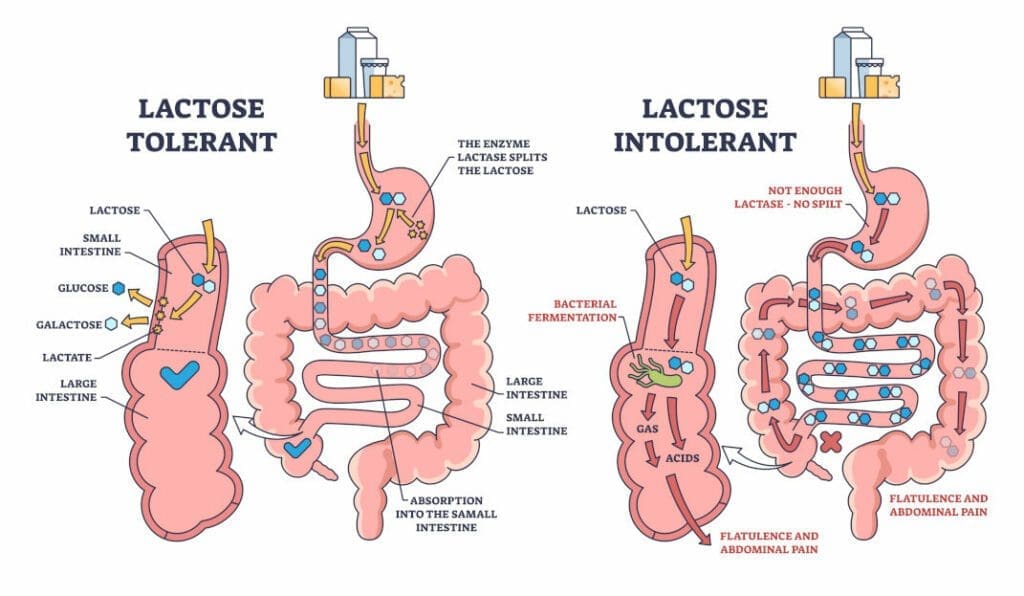
Food intolerances are sometimes linked to specific types of food that may irritate the gut. This can include certain processed or prepared meals that contain ingredients known to trigger intolerance.
Foods that carry a Risk of intolerance are often the same as those associated with Allergic reactions. Potential allergens are typically highlighted in bold on the ingredient lists of packaged food products.
(Food intolerance can be difficult to manage. We may feel tempted to cut out whole food groups, but doing this without proper guidance can reduce variety and upset the nutritional balance of our meals.)
Leaky Gut Syndrome
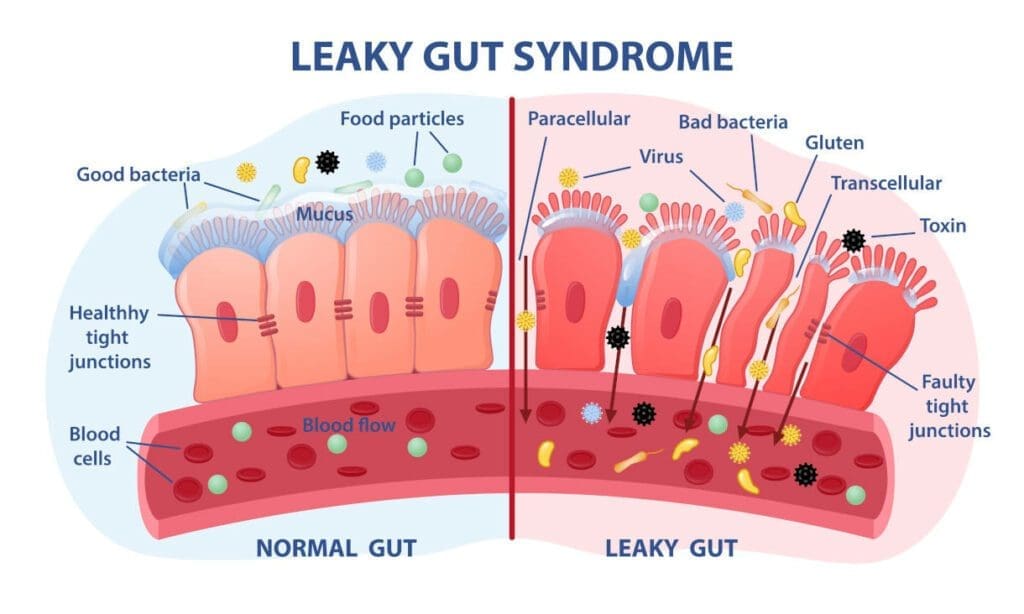
As previously mentioned, Probiotics, Prebiotics (Link), Oily fish, Rapeseed oil; or even Pumpkin, Flax and Chia seed are well known for their Omega-3 content; Can help regenerate the gut’s internal barrier known as mucus, which serves as a natural defence.

Some people occasionally report minor headaches or unexplained discomfort, which can sometimes be linked to diet or individual food tolerance.
This is often a sign that something is not quite right, and it may be worth reviewing recent meals to identify any potential triggers.
If you suspect that a particular food may be affecting you, but you’re unsure, one way to test it is by following this simple method:
- Include the food in your diet for one week
- Remove it completely the following week
- Reintroduce it again in the third week
This process may help you better understand which foods could be causing an issue and allow you to monitor your body’s response more effectively.
For example, Dairy products contain Lactose, a common food intolerance trigger. Lactose is present in varying amounts depending on the product; Milk contains more lactose than cheese, but cheese, being more concentrated, should still be consumed in moderation. (Dairy is generally recommended daily, but only in small amounts.)
It’s also worth noting that eating Cheese or Butter in the morning may support the body’s natural repair processes. Animal fats are well absorbed by the body and can assist in regenerating the gut lining. (Butter is also believed to support synaptic function in the brain.)
Drinking Tea supports liver function and digestion, but it can also cause side effects such as anaemia and sleep disturbances. That’s why it’s important to include iron-rich foods; Such as spinach, broccoli, or cabbage; In your diet. (See also the “NASH diet”. Be cautious with restrictive diets, as they can increase the risk of yo-yo dieting.)
Understanding how the gut absorbs vitamins is also useful. For instance, calcium and iron can interfere with each other’s absorption, while some vitamins; Such as vitamin C; Enhance the absorption of others, like iron. Regardless, it’s vital to maintain appropriate intake levels of all essential nutrients.
In all cases, do not hesitate to speak with your doctor. Even minor or occasional symptoms could be signs of a food intolerance or a more serious health condition.
Depending on the situation, it’s also wise to give feedback to your doctor; Or even to the restaurant or establishment where you ate; If you suspect a reaction.
Be Careful with Food Supplements
Always follow the recommendations provided by your Doctor, Pharmacist, or the Packaging instructions. Even if vitamins and supplements are sold without a prescription, it’s best to consult a healthcare professional before starting any supplement routine.
EMDR
EMDR (Eye Movement Desensitisation and Reprocessing) is a therapeutic technique recommended by David Servan-Schreiber. It involves guided eye movements and is commonly used to treat trauma and stress, often referred to as Desensitisation and Reprocessing.
However, recent guidance; Such as updates from the ConsoGlobe website (Link); Indicates that EMDR may have certain limitations and could be potentially unsafe in some cases.
While David’s books report promising results with EMDR, it remains a relatively new approach. Additionally, the technique presents challenges in being rigorously tested in laboratory settings. Therefore, it is advisable to approach it with caution. Further research is expected in the coming years.
EMDR can be encouraging news, but it’s important to consult your doctor asking his advice before exploring it as a treatment option.
Knowing When You May Be at Risk
Taking care of our health is vital for maintaining overall well-being. However, in some situations, we may not immediately realise that we’re in danger, or we may underestimate the risks. The health of those around you, and your own, should always come first.
If you suddenly feel in danger, it’s often best to leave the area and contact the local authorities. Acting quickly and responsibly can help you avoid unnecessary health or safety risks.
Always remember:
“You are not alone. Even in difficult times, help is often closer than you think. Government services, charities,and social workers are all there to help you face life’s challenges.”
And also:
“Whatever happens, Your health is the most important thing.”
Mindfulness
If you like to practice mindfulness, you can find some help at the following (Link).

Sugar Intake by Day
David mentions in his book the issues related to sugar and its link to cancer risk; Not just cancer, but also other conditions such as diabetes, the yo-yo dieting effect, and obesity.
David Servan-Schreiber recommends avoiding sugar as much as possible because “Sugar calls for more sugar,” especially when it’s found in ultra-processed foods containing refined sugar.
Fruits also contain sugar (Fructose), but they are rich in vitamins and beneficial to health. It’s important to maintain your “5 a day”, ideally with a higher proportion of vegetables than fruit; For example, three portions of vegetables and two portions of fruit per day are recommended. Some advice suggests increasing overall consumption, ideally with a greater emphasis on vegetables than fruits. (Link)
According to Dr Frédéric Saldmann and several health organisations, there is a recommended maximum daily intake for added or processed sugar that should not be exceeded; For example, 25 grams per day in Canada. This limit varies by country depending on different public health guidelines.
This threshold marks the point where the risk of developing cancer and other health issues begins to increase.
David Servan-Schreiber advises cutting out processed sugar entirely.
One important point to understand is that we must stay mindful of what we eat, because sugar; Like salt; Can be found almost everywhere. For example, sugar can be added even to a tin of green beans, increasing your daily intake without you realising it. (Sugar is often used as a preservative or flavour enhancer.)
We recommend checking the ingredient list on food packaging carefully; For example, by using the Yuka app (Link), which can help you identify hidden sugars.
Twenty-five grams of sugar can be exceeded quickly. For instance, a single 330 ml can of Coke contains 45 grams of sugar, which is equivalent to about 12 sugar cubes.
Once we start paying attention to these details, having a mental image or benchmark can help us better understand how much sugar we’re really consuming. It gives us a threshold that helps raise awareness and encourages healthier choices.
This improves both our nutritional understanding and daily habits. As David Servan-Schreiber often explain: “What matters most is what you do every day, not the occasional treat.”
Sweeteners (Be Careful)
When trying to reduce sugar, Sweeteners are not always the best alternative, as some are suspected of being carcinogenic and may increase the risk of certain cancers; Pancreatic cancer, for example.
Some soft drink brands; Such as Fever-Tree or Karma Cola; Contain less sugar by default. However, dentists generally recommend avoiding fizzy drinks altogether due to their acidity and their damaging effects on teeth.
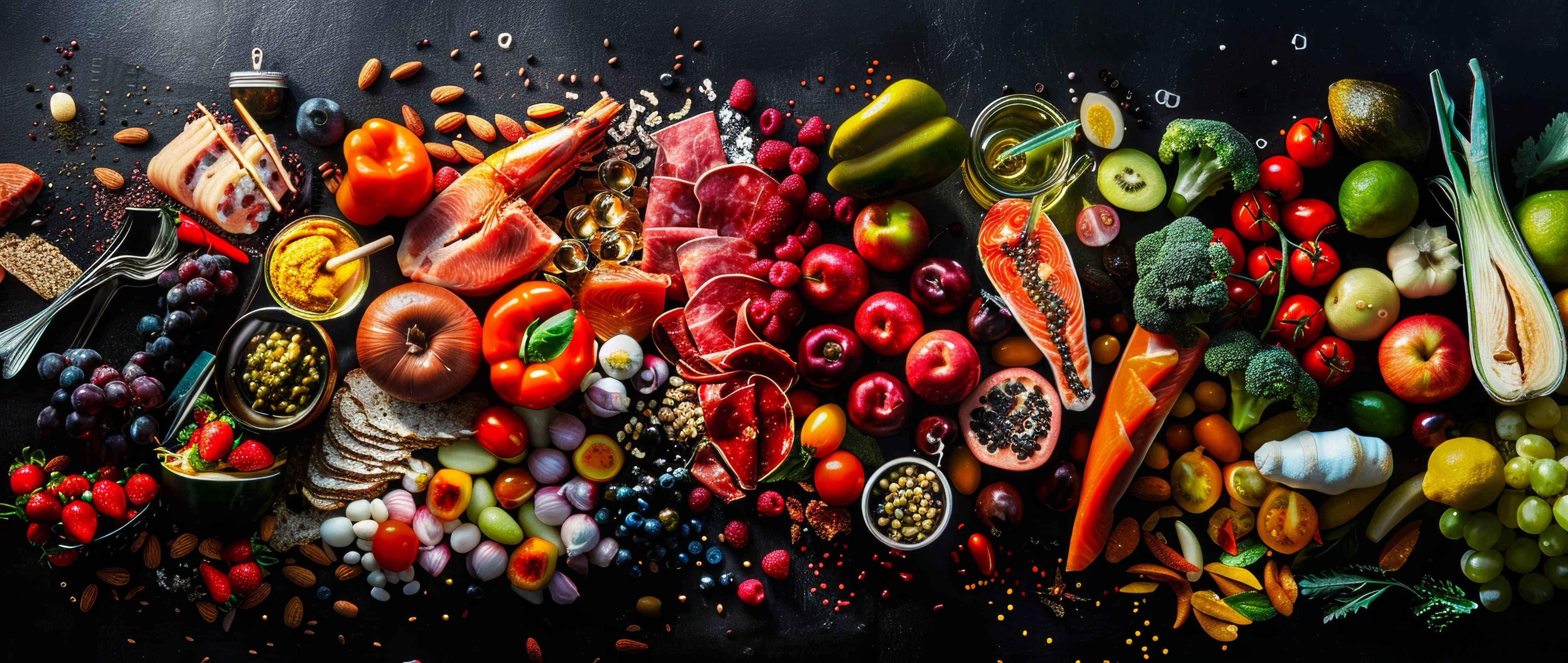
Conclusion
I’d like to mention that if you’re beginning to take an interest in health and well-being; Especially in the area of anticancer approaches; It’s well worth reading some of David Servan-Schreiber’s books. All of his works are insightful and offer a chronological overview of the progression of his research.
David’s first book, “The Instinct to Heal: Curing Depression, Anxiety, and Stress Without Drugs and Without Talk Therapy“, is particularly important.
In it, David explains how to combat depression, noting that his research showed a link between depression and a weakened immune system; Something that, in turn, may increase the risk of cancer.
His book “The Body Loves the Truth“ is also excellent. It provides a helpful summary of many of his key recommendations (Such as the first 20th guideline listed on this page).
You might not realise it straight away, but it takes time to fully absorb the knowledge in his books; First to understand it, and then even more time to begin changing daily habits.
Changing habits is a long process for everyone; Often longer than we expect. We need to be patient with ourselves, and even more so with those around us.
This is also one of the reasons why I created the www.HealthInYourPlanet.com website. It offers a way to share simple, reliable health information and to guide people toward trustworthy sources. The site also aims to provide health education in a non-intrusive, accessible way. This approach is sometimes referred to as “Health knowledge vulgarisation”, as mentioned by Jessie Inchauspé in her book “Glucose Revolution“.
New books on health are published every year, which is great news; It helps raise awareness and allows people to learn how to better take care of themselves.
Don’t hesitate to visit your local library; You’ll likely find a wealth of resources in the health section.
Some may think that those interested in health information are being overly cautious. But in reality, when people start exploring health topics on their own, they often end up having more informed conversations with their doctors. In the end, it’s a Win-Win; And a virtuous cycle.
David Servan-Schreiber Bibliography
- Healing Without Freud or Prozac Original French title: Guérir – Le stress, l’anxiété et la dépression sans médicaments ni psychanalyse
- Publisher: Rodale Books, 2011
- ISBN: 978-1-4050-7758-3
- The Instinct to Heal: Curing Depression, Anxiety, and Stress Without Drugs and Without Talk Therapy
- Publisher: Rodale Books, 2004
- ISBN: 978-1-59486-158-1
- Anticancer: A New Way of Life Original French title: Anticancer – Prévenir et lutter grâce à nos défenses naturelles
- Publisher: Viking Adult (US), 2008 / Penguin (UK)
- ISBN: 978-0-670-02034-8 (US edition)
- Not the Last Goodbye: On Life, Death, Healing and Cancer
- Publisher: Macmillan, 2011
- ISBN: 978-1-4472-0181-2
- The Body Loves the Truth (less widely known English edition)
- This title is based on key ideas and summaries from his other works, often referenced as part of broader publications or guides inspired by his research.
Please don’t hesitate to explore other pages on www.HealthInYourPlanet.com. You’ll find additional advice and recommended books on health and sustainability topics. (Link)
Comments are closed